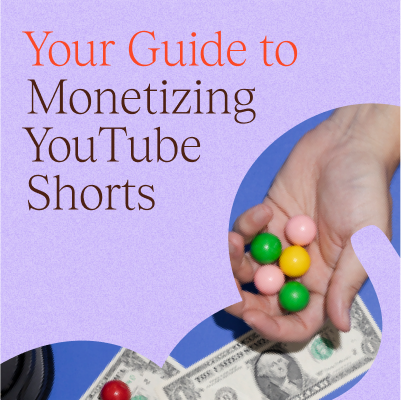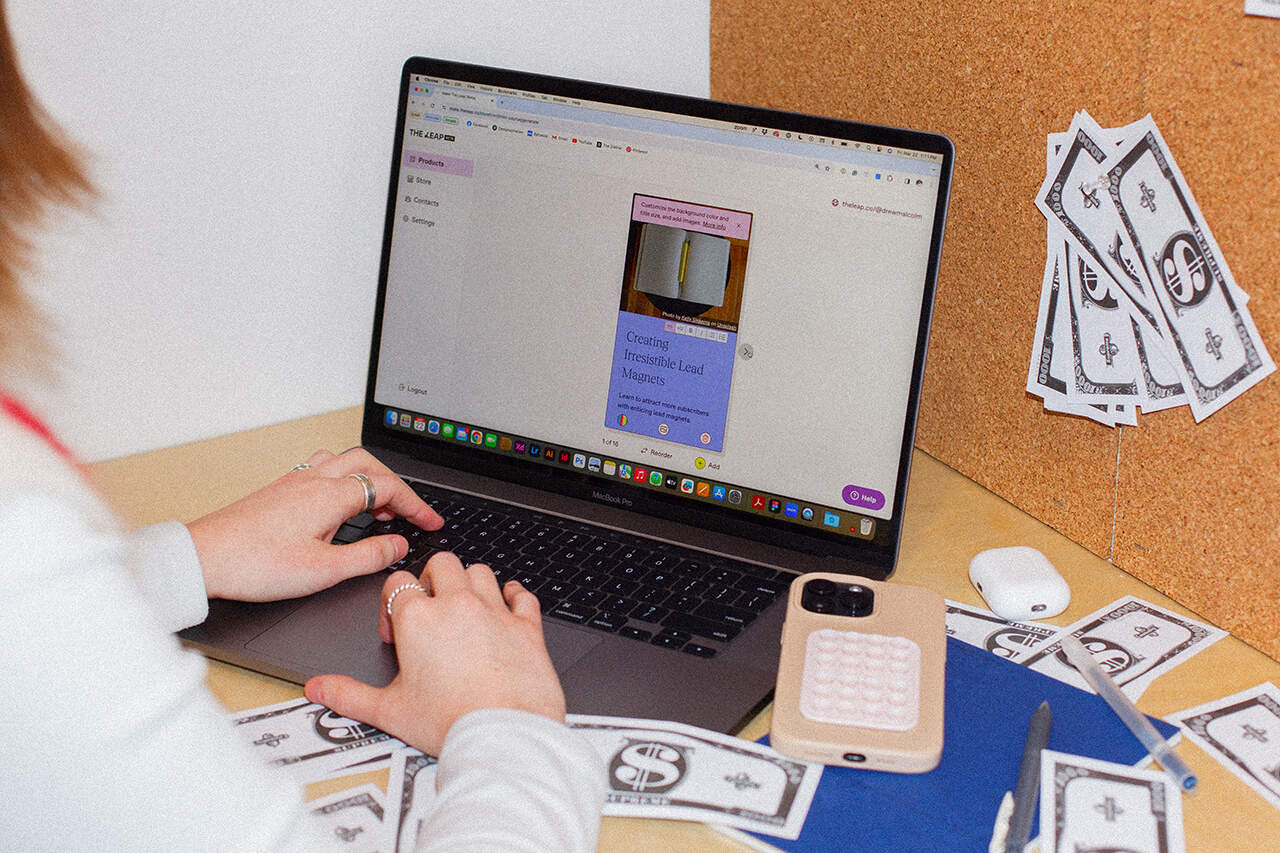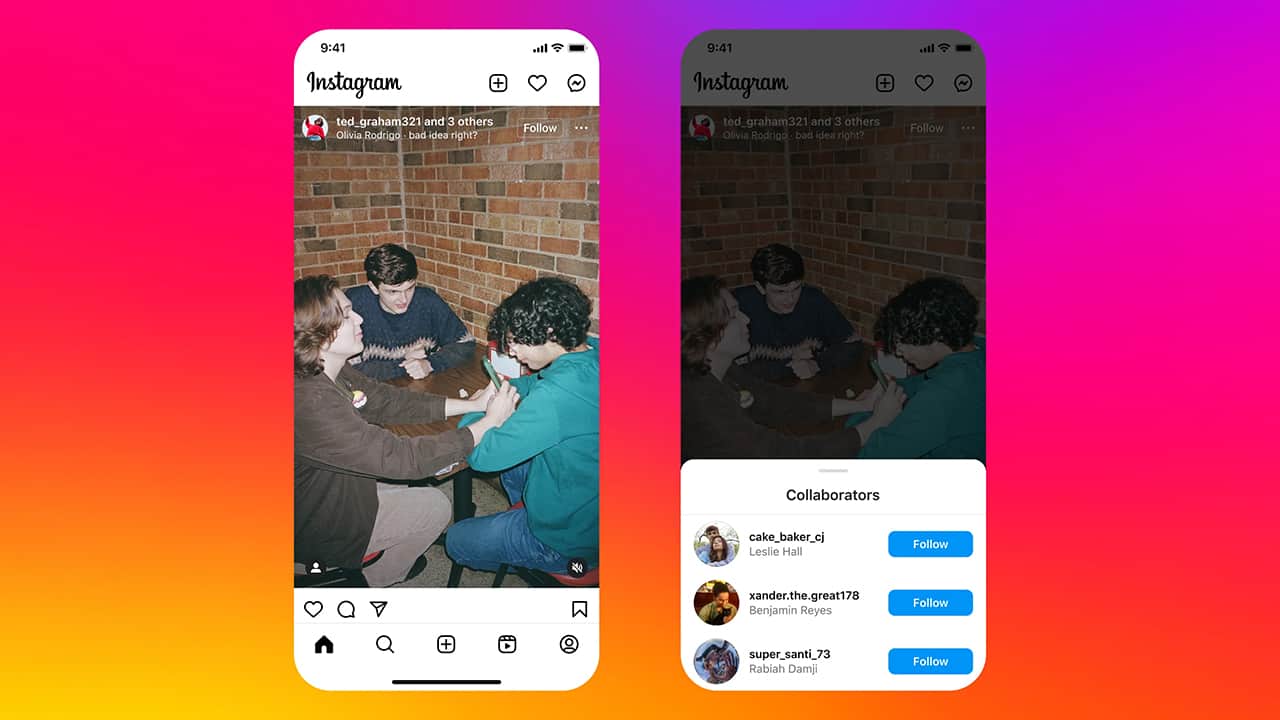So you’ve decided to start a YouTube channel. Whether you’re just embarking on your content creation journey, or you’re a seasoned creator branching out into the video platform, you’d want your channel to succeed. Your first milestone is to gain 1,000 subscribers.
Why? Getting your first 1,000 subscribers is essential to becoming eligible for all monetization options in the YouTube Partner Program, including being able to earn ad revenue. Hitting that subscriber count and a minimum amount of watch time (4,000 watch hours of long-form videos in the last 12 months, or 10 million Shorts views in the last 90 days) will allow you to take your YouTube channel from a hobby to a legitimate side hustle, or even a full-fledged content creation career.
But how do you begin growing your channel? Read on for 11 effective ways to get your first 1,000 YouTube subscribers.
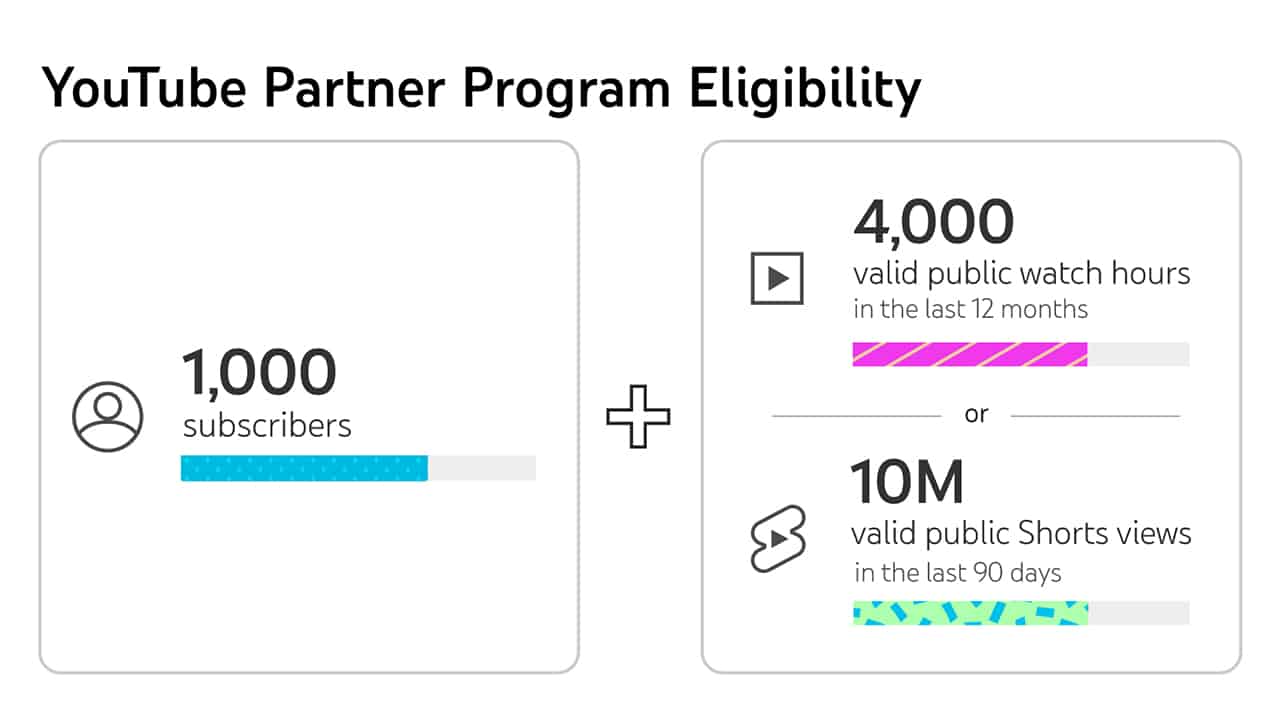
11 tips for getting your first 1,000 YouTube subscribers
1. Create videos about your expertise or passion
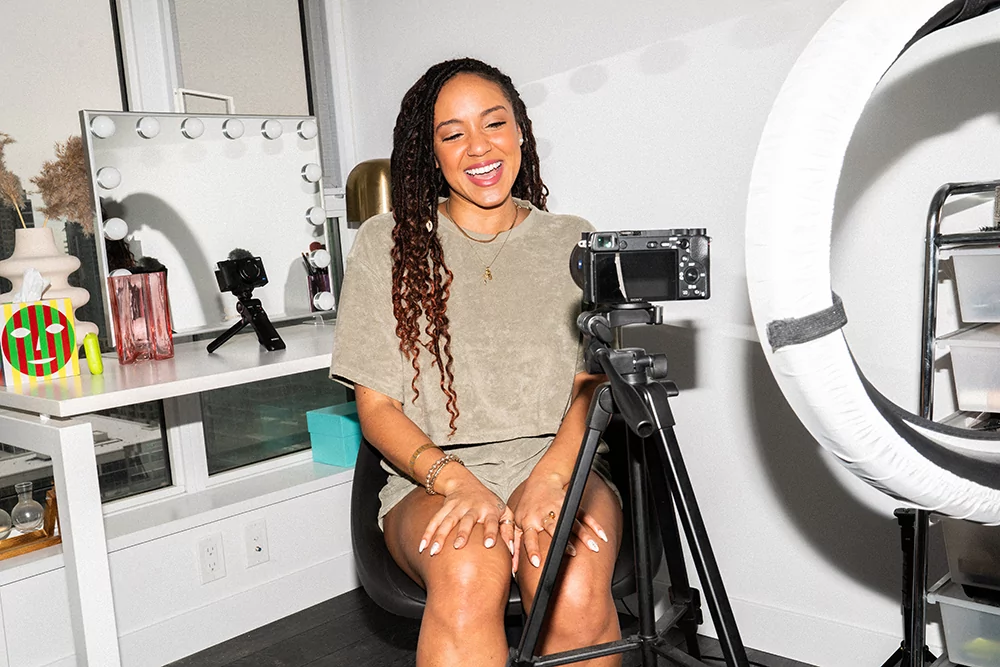
As a creator, you’ve probably picked out a niche you’re passionate about. Well, guess what? Having a passion means you have at least some knowledge about a given topic, and that expertise is something that audiences are eager to get access to. This applies to audiences on all creator platforms, and YouTube is no exception.
According to Jay Clouse, founder of Creator Science, creating content on something you’re knowledgeable about is a great place to start: “In an ideal world, you have some type of earned insight that you can leverage. Something that you have uniquely discovered and identified through experience.”
However, it’s okay if you’re not an expert on a topic yet as you start your YouTube channel. Clouse says that you can position yourself as a beginner who’s excited to learn about something and share that process with your viewers: “Say I’m really interested in this problem, and I’m going to be investigating it. Along the way, I’m going to share what I’m learning [in my content].”
2. Publish new videos regularly
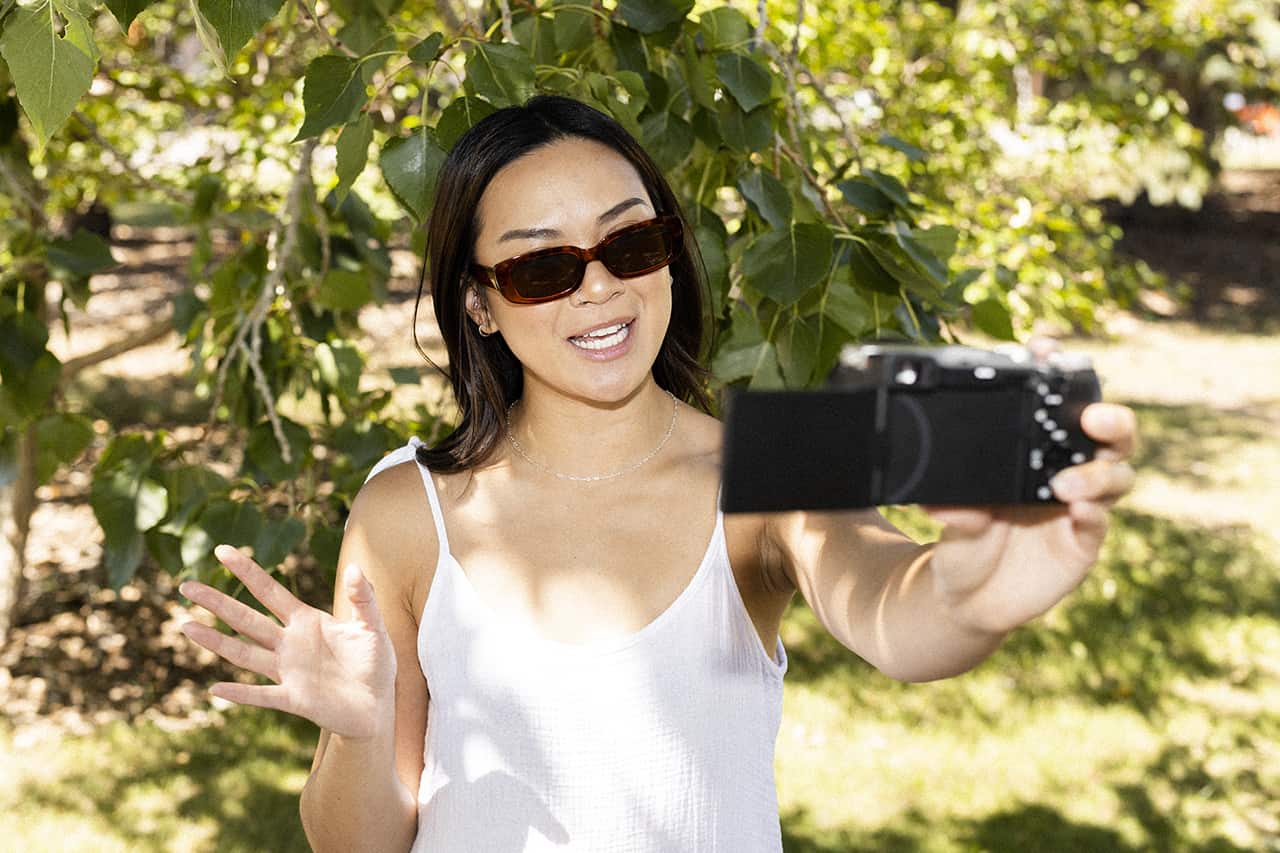
Beginner creators tend to get excited about a platform, publish a bunch of content early on, and get discouraged when it doesn’t seem to go anywhere. But remember this: few YouTubers are overnight successes. The best way to ensure that your subscriber count grows is to consistently upload new videos.
So, how often should you be posting new videos on your YouTube channel? The answer may vary depending on who you ask, but a good rule of thumb is to post at least once a week — or two to three times if possible — if you want to see some quick results.
Publishing frequently can help grow your YouTube channel into a robust one in just a couple of months. It’ll also give you the opportunity to experiment with your content.
3. Experiment with different types of videos

When your channel is still under 1,000 subscribers, you haven’t really found your audience yet. Just because you started out making a certain type of video doesn’t mean that’s the kind of video that’ll bring you success. As you’re building your YouTube channel, you’ll need to test out different content to see what sticks.
These early stages are the best time to experiment, because the risk is so low. You have the luxury of trying whatever you want, so have fun with it!
While video formats such as tutorials, reaction videos, and listicle-style videos are known to be popular on YouTube, you can also explore other types of content. Go beyond your comfort zone, and you might land on the kind of video that skyrockets your channel’s growth.
4. Add YouTube Shorts to your content strategy
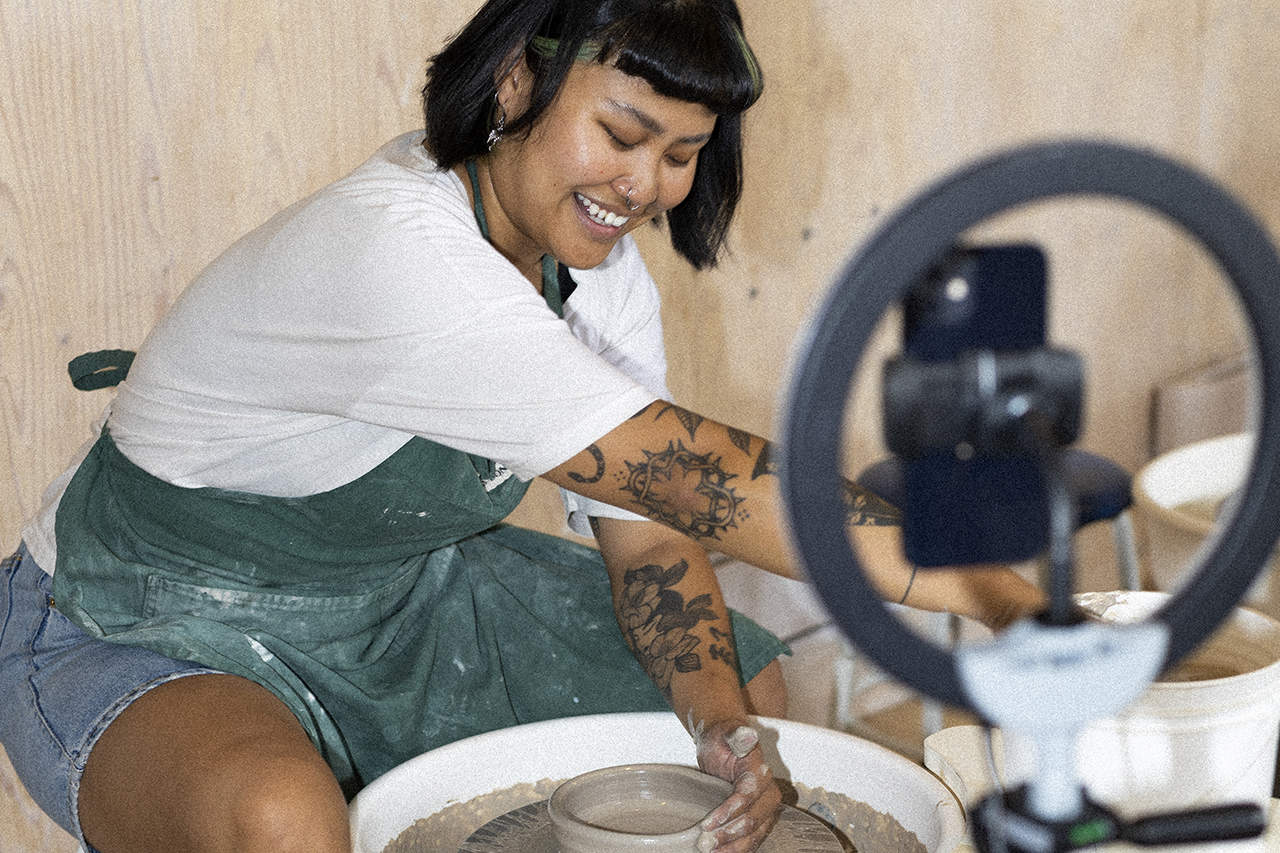
While YouTube Shorts are relatively new, the short-form video format is taking the platform by storm. Even if you specialize in long-form content, there are a few good reasons why you should make Shorts part of your YouTube strategy.
Shorts use a different algorithm: YouTube employees have confirmed that the Shorts algorithm isn’t the same as that of long-form videos. That means any Shorts you create have every chance to reach potential subscribers, and they won’t hurt your channel’s long-form content.
Shorts encourage experimentation: Because they’re so quick and easy to create, Shorts are a great way to experiment with new kinds of content and new topics. You just need your phone and a couple of minutes to film and edit.
Shorts are great for discoverability: The Shorts feed is designed in a way that allows viewers to discover random content, encouraging them to keep scrolling and watching the next video. If you want to put your content in front of more eyes and increase your chances of reaching new subscribers, posting Shorts will certainly help.
5. Introduce opportunities to subscribe to your channel wherever you can
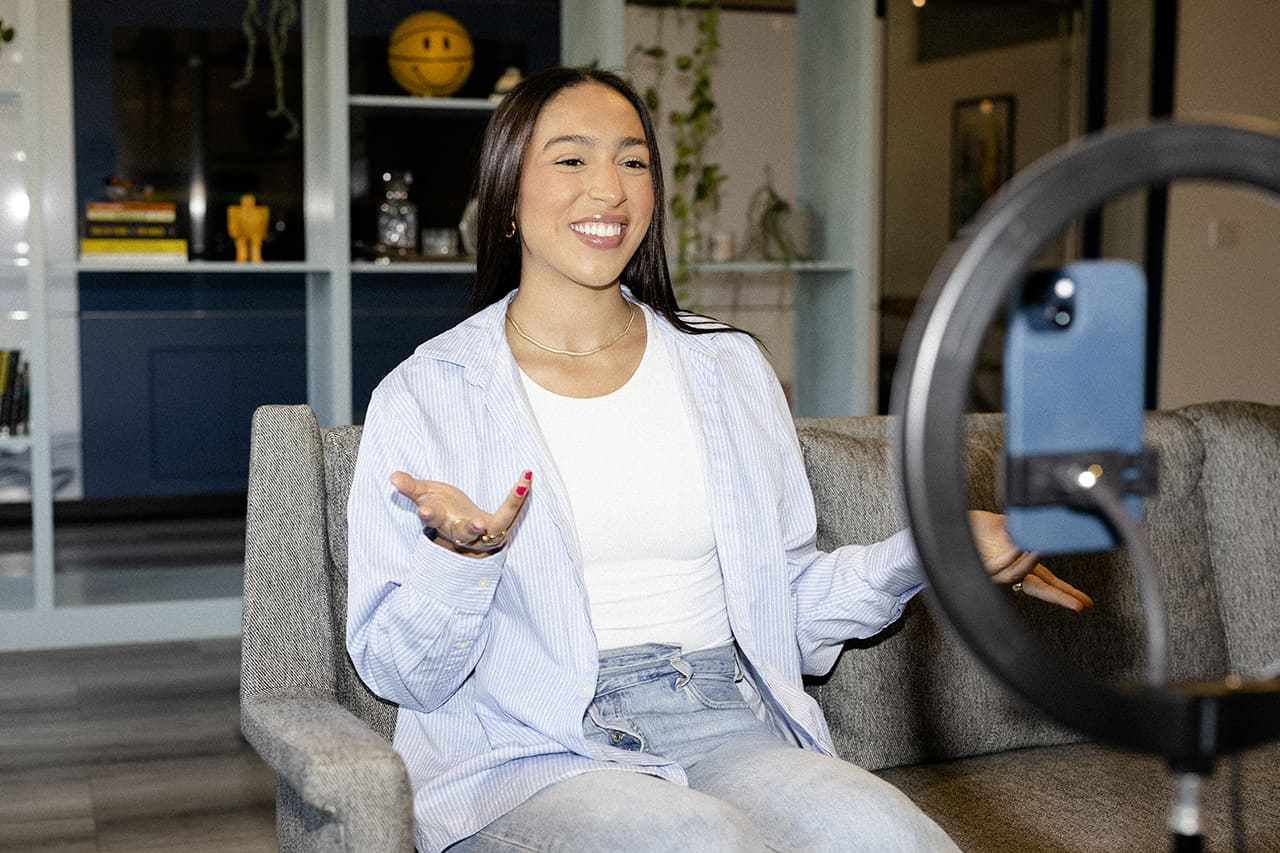
Seems pretty obvious, right? But you’d be surprised how many YouTubers don’t make the most of their videos’ descriptions or the content itself.
If you want to drive up your subscriber count, you need to insert multiple opportunities in your content for a viewer to hit subscribe. While you don’t want to throw it up in their face every few seconds, you should include a link to subscribe in your video’s description, say it out loud (“Don’t forget to like and subscribe!”), and add a subscribe button to your video.
The subscribe button comes in the form of a video watermark. When viewers are using YouTube on a computer, they can click the watermark to directly subscribe to your channel. Here’s how to add one to your videos:
- Sign in to YouTube Studio.
- Select Customization from the left menu, then tap Branding.
- Select the display time of your video watermark — choose between the entire video, the end of the video, or a custom start time.
- Click Change and upload an image for your video watermark, then click Done and Publish.
6. Optimize your videos for search

SEO, which stands for search engine optimization, refers to practices that marketers use to get their content to rank higher in search engines. Usually, that means tweaking blog posts and web pages so they perform well for Google Search. But did you know you can do the same for your YouTube videos?
Since YouTube has a search engine, you can use a few simple tricks to get more attention for your videos and reach potential new subscribers. Here’s what you can do:
- Find keywords that reflect the content you create. You can do so by researching what keywords creators in your niche typically use.
- Include those keywords in your video titles and descriptions.
- Add tags that describe what your videos are about.
- Write detailed descriptions summarizing your videos’ content.
7. Review your videos’ performance in YouTube Analytics

Did you know that you get a free suite of analytics right in your YouTube channel? With YouTube Analytics, you can see which of your videos perform best, get an idea of what your current subscribers enjoy and want more of, and adjust your strategy as needed.
So after posting a string of videos, don’t forget to check in on your analytics. Over time, you’ll start noticing trends that you can capitalize on to bring in more subscribers.
8. Ask for your audience’s suggestions in the comments

Even if you only have a few dozens of subscribers, your audience can be of huge help when you’re trying to grow your channel. After all, they’re already enjoying your content, so who better to consult with when brainstorming what videos you should create next?
Asking for suggestions in the comments section is especially helpful when your audience is still small, because it’s possible for you to read every single comment and find great ideas. If you create content that’s directly requested by your current audience, you’re bound to attract more viewers like them.
9. Upload a trailer to your YouTube channel
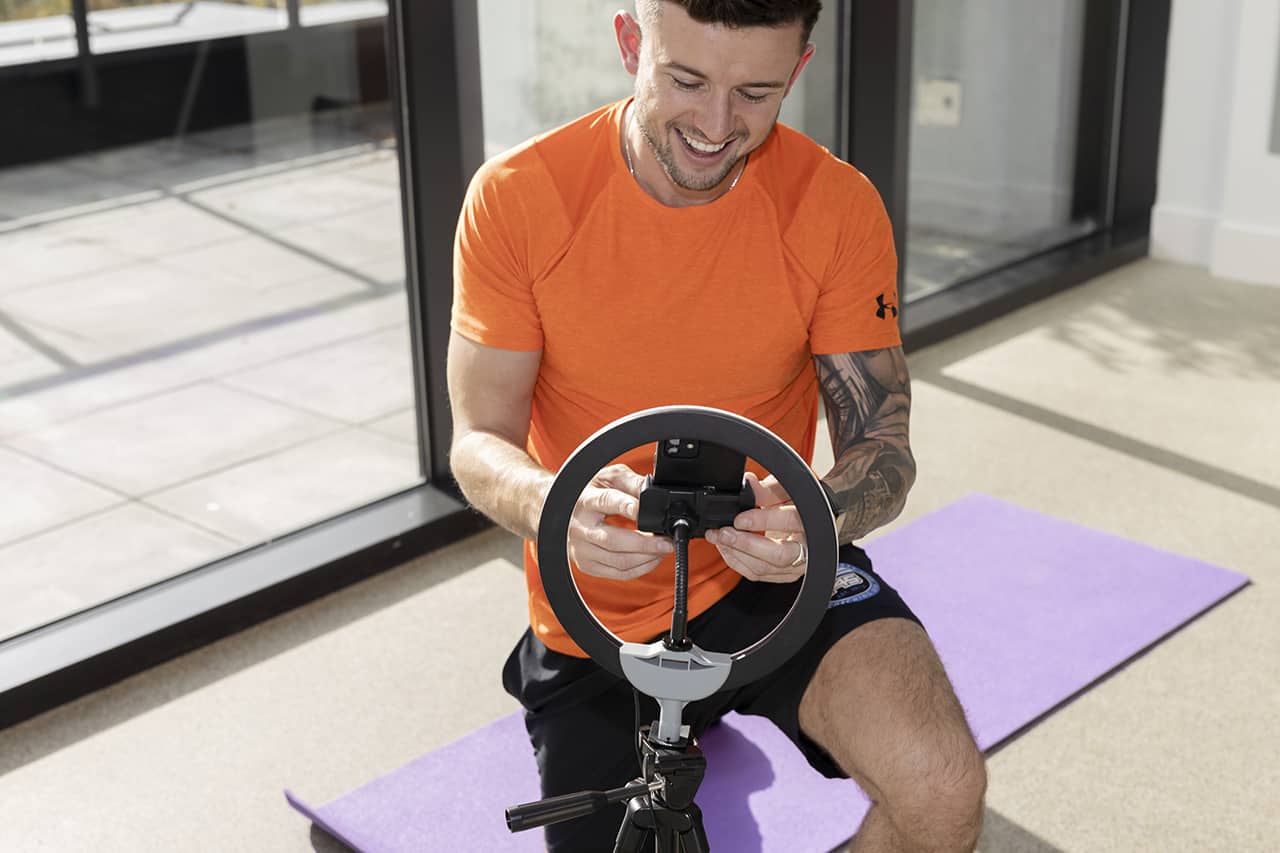
What’s one of the first things people do when they see a YouTube video they like? They’d usually check out the channel to see what it’s all about. A channel trailer gives viewers a quick glimpse of the kind of content you create, without having to scroll through every single one of your videos.
The trailer plays automatically when potential subscribers land on your channel, which means it’s an easy way to hook them in and get them to click that subscribe button.
10. Find the perfect time to post on YouTube
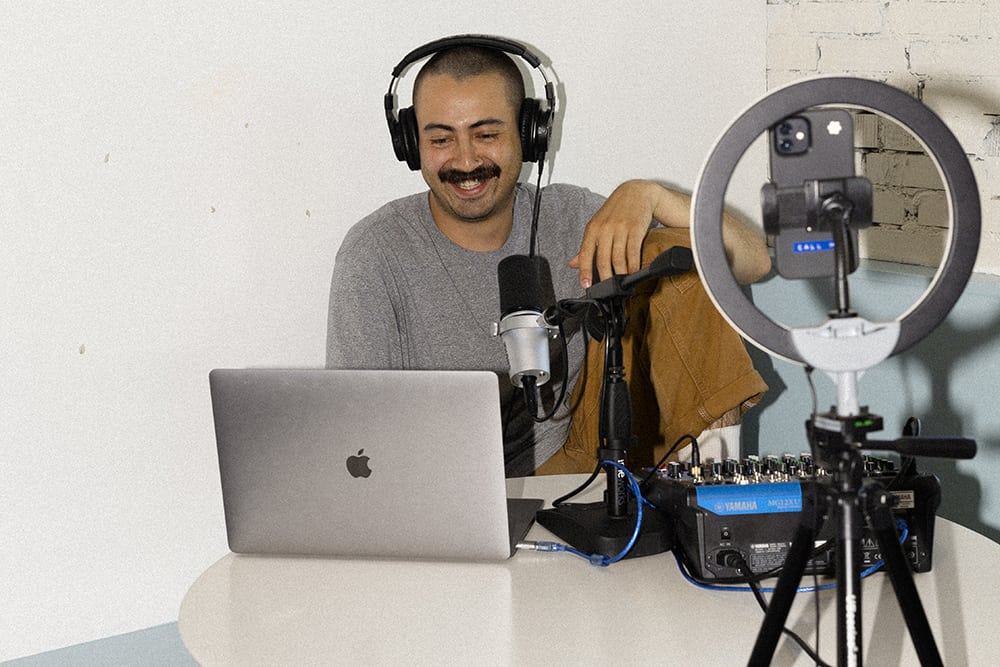
Do you know when you should be posting on YouTube? While there’s no secret trick that’ll instantly get you 1,000 subscribers, there’s a simple strategy you can adopt to ensure your videos get in front of as many people as possible: publish new videos when your audience is most active on YouTube.
Depending on your niche and target audience, your videos will perform better at different times of day (and different days of the week). So how do you figure out the right time to post?
First, you’ll want to check your analytics on YouTube Studio. As long as you have enough views, you can find a chart under the Audience tab that shows you when your audience is usually on YouTube.
If you are just starting your YouTube channel and don’t have access to this data, don’t worry. Start by posting between 6 p.m. and 9 p.m. (i.e. one of the best windows to post according to research by HubSpot) and see how your videos do. That’ll give you some data you can use to adjust your strategy, whether that means posting in the same window or at a different time.
11. Collaborate with other creators

When you collaborate with other creators, you can essentially share each others’ audiences for the duration of your collab. Typically, you’d participate in a video on the other creator’s channel, and they’d appear in one of yours — with some cross-promotion to go along with them.
As you’re just starting out, you might want to reach out to creators who are around the same level as you to collaborate. While working with a bigger creator would have more of an impact on your channel, they’re not as likely to agree to a collab than a smaller creator.
Can you monetize on YouTube without 1,000 subscribers?
For most of YouTube’s history, creators needed at least 1,000 subscribers to access any monetization options of the YouTube Partner Program. While 1,000 may seem like a small number when compared to some of the biggest channels on the platform (think MrBeast and Emma Chamberlain, whose YouTube channels boast millions of subscribers), it can be a long uphill climb for many creators — especially beginner and part-time creators making more niche content.
The good news is that YouTube has recently introduced a more accessible tier for its Partner Program, allowing more creators to gain early access to some of its monetization features. With the expanded YouTube Partner Program, you’ll only need 500 subscribers (and either 3,000 public watch hours, or 3 million public Shorts views) to be eligible.
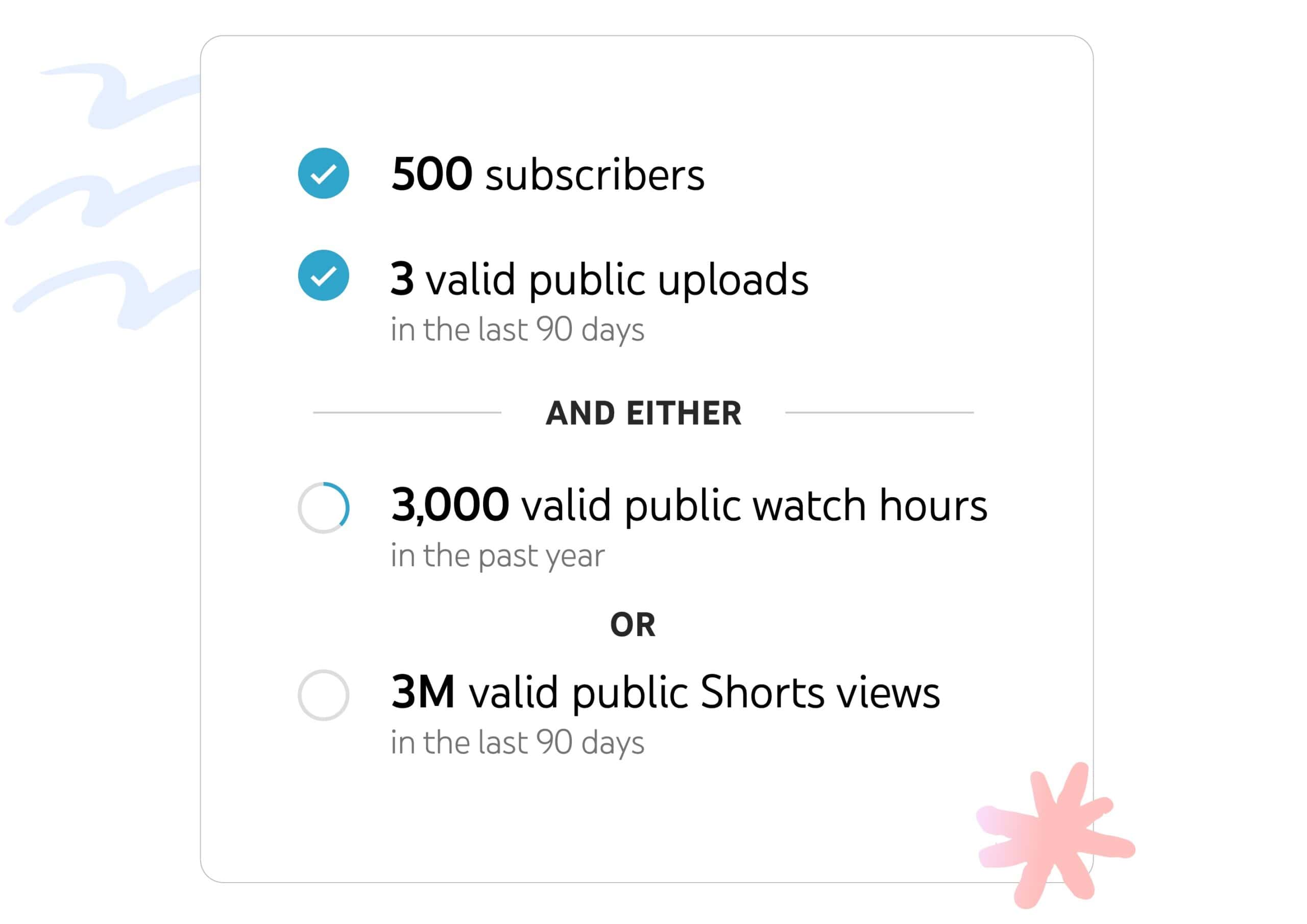
Note, however, that there are some limitations to this lower tier of the YouTube Partner Program. It doesn’t give you access to all monetization options of the program, including ad revenue sharing. Instead, you’ll only be able to monetize through YouTube’s fan funding features (i.e. channel memberships, Super Thanks, Super Chat and Super Stickers) and YouTube Shopping (strictly promoting your own products).
One more thing to keep in mind: this expanded tier is only available in some regions. Here’s the full list.
Ready to make money on YouTube?
Hitting 1,000 subscribers is one of the first big milestones for any YouTube creator. It not only shows that your content has legs, but it’s also the first step for monetizing on YouTube. Make sure to keep publishing videos consistently, listen to your audience, and give viewers every chance to subscribe to your channel. Stick with it, and you’ll get 1,000 subscribers in no time.
Want more tips for making money on YouTube? Check out our YouTube Shorts Monetization Guide to learn how you can start earning with short-form videos.
FAQ
What happens when you get 1,000 YouTube subscribers?
When your channel hits 1,000 subscribers, you become eligible for the YouTube Partner Program — as long as you’ve also had either 4,000 public watch hours or 10 million Shorts views. With this eligibility comes a whole slew of monetization options:
- Ad revenue sharing
- Channel memberships
- Super Chat and Super Stickers
- Super Thanks
- YouTube Shopping
- YouTube Premium
Learn more about YouTube’s monetization features.
How much does YouTube pay for 1,000 subscribers?
How much you earn in ad revenue from YouTube depends on a number of factors, including your channel’s niche, your subscriber count, your audience demographics, and your videos’ engagement rate. According to vidIQ, the average RPM (revenue per mille, i.e. how much you earn per 1,000 views) is under $9.
Use our YouTube Money Calculator to estimate how much you can earn from your channel.
Follow The Leap on TikTok, Instagram, and YouTube for more audience growth tips. We also make a newsletter.

